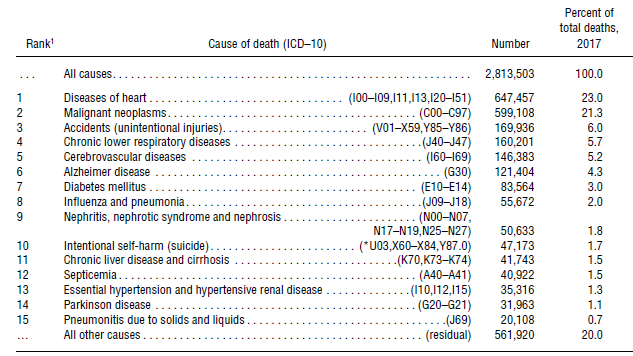We probably hit 50,000 deaths by the end of today.
RE: strains etc
As previously discussed, seems like the importance of initial viral load is a big factor. Places/situations where exposure is more likely to be prolonged faring much worse. Factors into the population density equation, and the effectiveness of social distancing.
Undercount. Systems for accepting claims are overloaded.
Simply put, a lawyer sued the government stating that restrictions on movement and what businesses can do were done illegally and ended up winning.
There’s a bit of legalese here. In the beginning, restrictions were made under the Crisis Act which allows for these changes to be made by the government legally. Inexplicably, Babis claimed that this was no longer a crisis but a public health issue and then started making further restrictions under the Public Health Protection Act a few days after the virus arrived at the CR. Thing is that the PHPA was not intended to pass restrictions like these.
The reason why this was done was because if things went tits up for one reason or another, then people like business owners could hold the government liable for financial damages for restrictions passed under the Crisis Act. Under the PHPA, the government would be protected from damages.
Basically, Babis used the coronavirus chaos to pull a fast one in order to cover his and his administration’s ass and he got caught. The government has until April 27th to comply with the removal of restrictions. Of course, what will happen is that the restrictions will be put back into place under the Crisis Act and nothing will change from a practical perspective for the average person.
Now that the court ruled that restrictions under the PHPA were illegally passed and an example of an abuse of power, the government has just opened itself up to a crazy amount of lawsuits from the people for this. They’ll be dealing with these cases years after the pandemic ends.
When E.T. gets COVID, you’ll have trouble breathing, too.
One thing I find odd is that the is still the occasional article about a struggling airline that says something like “current volumes are 90% down from pre-COVID”. I’m surprised its not 100%. Like who is still flying at this point?
Freight.
https://twitter.com/gelles/status/1253283590974189574?s=20
OMG, a head of state that isn’t blowing smoke up the collective asses of her country
How refreshing
More than 50% of people going into a nursing home will die within 6 months. That doesn’t mean deaths above expectation isn’t a good way to estimate covid deaths, but it implies other things.
I saw a YouTube of a flight with like 7 people on it. Dunno how much that is happening. It’s got to be a huge loser for the airline.
https://www.washingtonpost.com/health/2020/04/22/coronavirus-ventilators-survival/
But the numbers diverge more for the critically ill put on ventilators. Eighty-eight percent of the 320 covid-19 patients on ventilators who were tracked in the study died. That compares with the roughly 80 percent of patients who died on ventilators before the pandemic, according to previous studies — and with the roughly 50 percent death rate some critical care doctors had optimistically hoped when the first cases were diagnosed.
I think commercial airlines are being used to haul cargo, maybe that counts
Some beaches in SoCal have opened up with social distancing. The largest park in my town is opening with social distancing and masks required.
That seems way to high a mortality rate for nursing homes. Do you have a cite?
edit:
My quick googling found a NIH study on mortality rate in nursing homes - looked at almost 700 people and found yearly mortality rate of 31.8%. Based on chart, death rate seems fairly linear with about 15% dying within the first 6 months.
Median stay before death is 5 months.
53% died within 6 months.
That seems to be in Norway. Maybe different meaning/category of people staying in “Nursing Homes” which includes younger people in what we might call an acute care facility or something where people often recover and leave.
There are a lot of categories of housing for the elderly in the US. A place that has nurses giving care 24/7, but the people are walking around and playing bridge and stuff is usually called an “Assisted Living” facility.
Colleyville, an upper middle class town in North Texas, is allowing many businesses to reopen. Given the number of towns and cities in many metropolitan areas it is absurd that this is being allowed on this basis.
Also
We all know gyms are no brainers to reopen as they pose no risk. So it is surprising the industry had to lobby so hard.
Imagine decisions like this in the early stages being based on lobbying. It is so gross.
My mom was in a large facility here for a while that dealt with physical rehabilitation as well as senior care. I suspect these are not too uncommon.
I think it’s totally reasonable to think this way, and people will be looking at excess deaths once the data is available. But I don’t think it’s a useful exercise in terms of coming up with comparable death numbers attributable to a particular source, because we don’t treat other causes of death this way. For example, we don’t say, “There were ~40,000 fatalities from car accidents last year, but 5% of those individuals would have died during that period anyway, so the real fatalaties were only 38,000.” Ultimately, a death is attributed to a single factor when presenting aggregate statistics, like these from the CDC:

But I think it’s obvious that there were people who suffered from multiple diseases like heart disease, cirrhosis, and Alzheimer disease, but whose immediate cause of death was coded as a stroke because that was the very visible event that immediately preceded their death. So I have very mixed feelings about trying to uncount people that we think might have died anyway from other diseases during this period.